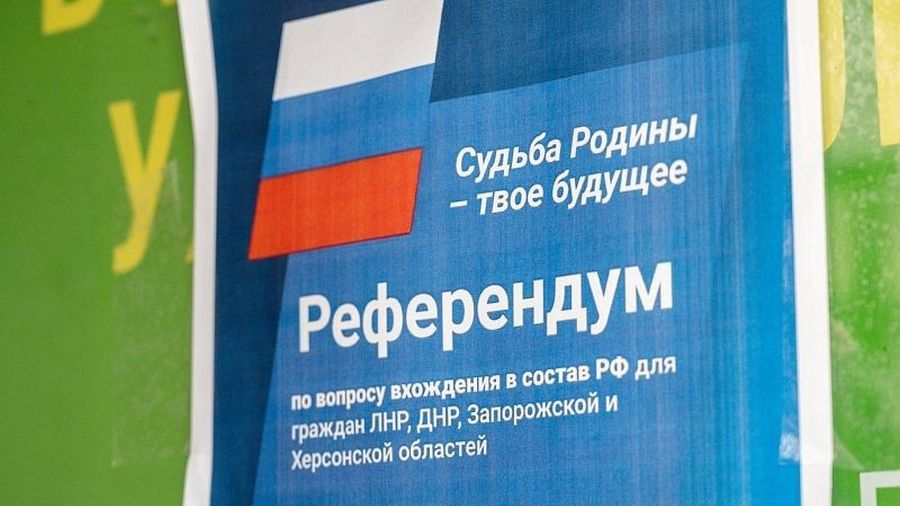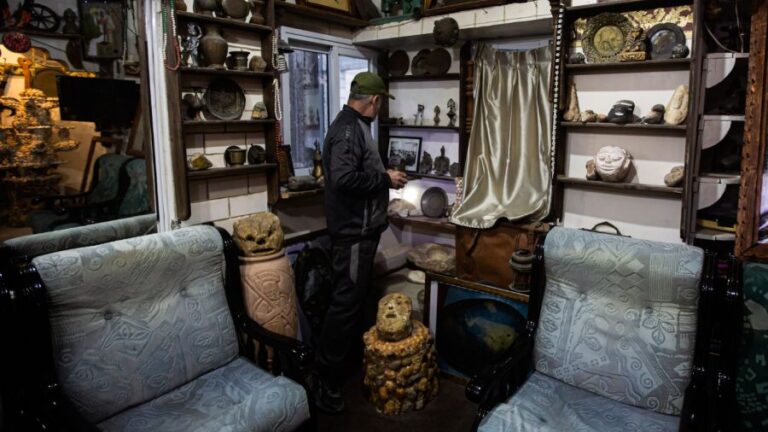The West Against Democracy
The position of the heads of states of the USA, Great Britain, France, Germany, and also the leaders of the European Commission concerning the referendums in the liberated from the neo-Nazi regime territories of Zaporozhye and Kherson regions, and also in DPR and LPR (where they are held repeatedly) shows the final break of the West with democratic traditions.
It sounds provocative. But it is a fact. Democracy, as such, is not an absolute indicator of the superiority of the political system. According to Plato, democracy occupied the penultimate place in the ranking of methods of governance. Classical Athenian democracy did not give the right to vote (that is, to participate in the discussion of political affairs) to women, slaves and foreigners. But in the West, since the Enlightenment, democracy has become a kind of fetish which they began to show to everyone as a reference point for the political system. The expression of citizens’ will through plebiscites is the utmost form of direct democracy, when every person who has reached the age qualification can express his/her opinion on some essential questions (as a rule, choosing one variant of the answer from the offered ones).
Hence, giving a chance to the inhabitants of the mentioned regions, which used to be a part of Ukraine, to express their opinion is the most humane and democratic option of choosing the future, which is determined by the citizens themselves. This is a manifestation of people’s sovereignty. Why does the West deny the people this right?
The reasons are obvious and there are several of them. The first is the double standards, since the West may well recognize the results of such votes when it deems it profitable. An example is the referendum on the secession of parts of Sudan and the declaration of independence there, which was actively supported by Western politicians and even famous Hollywood actors. However, the new state of South Sudan did not bring the expected stability to the region. Probably the benefit for the U.S. is to create strategic instability in order to offer some solutions.
The second is the Russophobic policy as such. In the West, they still continue to believe that only they have the right to determine what the measure of democratic norms is, who is more democratic and who is unworthy of this status. Western political scientists have invented a whole range of notions such as “rogue state” or “pariah state” which are sticked like labels on those countries which choose their own way of development. And if regular elections and plebiscites are held there by UN standards, still, as the US, Britain and their satellites believe, they will be unworthy of entering the community of democratic states. This is what happened to Russia. China, Iran, North Korea and a number of other states have deserved the same assessment from Washington. Therefore, if any proposals and initiatives come from Russia, they are not accepted in the West, even if the proposals are designed according to the molds of the West itself.
The third reason is the erosion of democratic mechanisms in the West. If there was a multi-party continental political tradition in Europe until recently, it was buried with the transfer of powers to the EU represented by the European Commission. After all, the people do not elect the European Commissioners. And in Britain and the United States, there is a two-party tradition, which is closely linked to lobbyism, that is, corruption. Consequently, democracy in these countries has become nothing more than a rhetorical phrase.
And most importantly, of course, the West is frightened that the citizens of their own countries will see what real democracy is! And they will ask a question – why we do not have it? And they will demand the introduction of relevant norms, amendments and legislation which is not in the interests of the corporate neoliberal elites.
Of course, there is also an adequate reaction to the referendums in the West. As former U.S. CIA analyst Larry Johnson correctly noted: “Did the United States hold a referendum when it took Hawaii or Mexican territory? Did the United Kingdom allow the American colonies a referendum when they wanted their independence? Hell, go down the list of British colonies that were taken by force without the natives of those countries being given a chance to vote to “join” the UK. Ditto for France. I don’t recall them holding an election when they took over Vietnam. It was only when the North Vietnamese held a “vote” at Dien Bien Phu that France “decided” to accept the will of the people.
Unlike the United States and the former global colonial powers, Russia is letting the people in the besieged Ukrainian oblasts decide. We are living through consequential history. This is a true game changer.”







